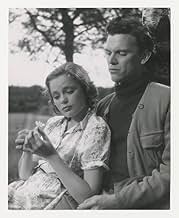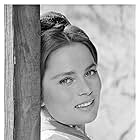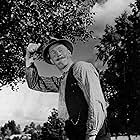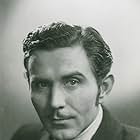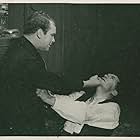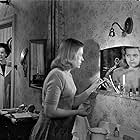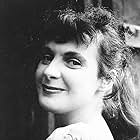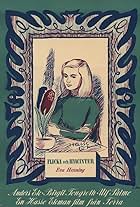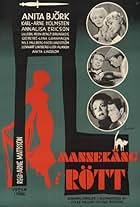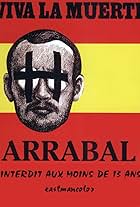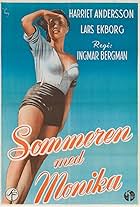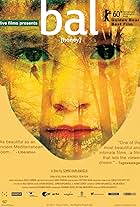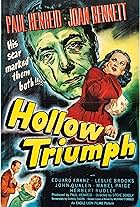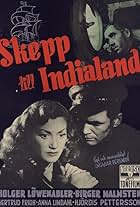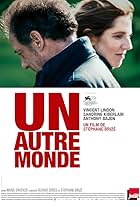VALUTAZIONE IMDb
6,8/10
915
LA TUA VALUTAZIONE
Aggiungi una trama nella tua linguaAfter graduation, a Swedish youth goes to live with his uncle in the countryside and immediately takes a liking to a local girl.After graduation, a Swedish youth goes to live with his uncle in the countryside and immediately takes a liking to a local girl.After graduation, a Swedish youth goes to live with his uncle in the countryside and immediately takes a liking to a local girl.
- Premi
- 2 vittorie e 1 candidatura
Folke Sundquist
- Göran
- (as Folke Sundqvist)
Sten Mattsson
- Olle, Farm Worker
- (as Sten Mattson)
Erich Conrad
- Helge
- (as Erich Conard)
Margaretha Löwler
- Mary Ann, Göran's Girlfriend
- (as Margareta Löwler)
Olav Riégo
- Teacher
- (as Olav Riego)
Trama
Lo sapevi?
- QuizThis film was mentioned by a 1954 Memorandum of the New York State Education Department, written with regard to New York State Law 1954, Chapter 620, which added definitions of "immoral" and "incite to crime" for motion picture censorship purposes. The Memorandum cited this film as an example of a film about which the ED's Motion Picture Division had been "beset with inquiries and applications for reconsideration of motion pictures which heretofore have been regarded as contrary to the present provisions of the statute." It stated that One Summer of Happiness "contains a scene where a boy, nineteen, and a girl, seventeen, spending a vacation together, swim and embrace in the nude."
- Colonne sonorePsalm 355: Blott en dag, ett ögonblick i sänder
Music by Oscar Ahnfelt (as Oscar Ahnfeldt)
Lyrics by Lina Sandell
Recensione in evidenza
As someone pointed out, it is a simple summer romance story, a college boy goes to a rural area (uncle's farm), where he falls in love with a girl. And to put spoke in their path are girl's guardians (boy's uncle is almost encouraging), and the various orthodox people, including the village Priest.
The web tells this movie was roundly condemned and even banned for nudity and anti-religious portrayal.
The nudity aspect is, at least on today's age, less than negligible, and anyway it isn't for the purpose what today's nudity, including exposures by 'A' rated actors, are meant to (titilation), so that aspect, if any one tries to watch it for, is going to be disappointed.
The other aspect, probably what gave rise to its allround condemnation (compounded by the nudity) was its portrayal of Church/ Clergy in negative light and making the Priest as the Villain of the story.
This on surface seems to be merited, but isn't really. Though one must note that in all the major accidents in the movie, the Priest was involved. But it would be wrong to say that he deliberately engineered them.
Here the clash was between, Freedom and Bondage. The right to live and love is freedom. Love need not necessarily be sin, as one of the protagonists mentions. The aspect of morality IMHO makes the difference - heart and flesh. The Bondage on the life is put by Religion - and in fact not really by it, but by the orthodox and pedagogical misinterpretations, which really the movie tried to depict. These misinterpretations - the pedagogical part, is due to the Priest (and in fact in real life many of them) didn't understand the underlying message and took it by word values, and the orthodoxy comes many times due to the complexity of the persons (the cousin who is slowly crossing the age) or the aunt (probably due to the child-lessness?) and as a result, not only the sermons are wrongly delivered, but also wrongly interpreted (which led to barn burning, despite the Priest never intended anything like that to happen, the 'fire and damnation' in the mind of the mentally challenged disciple led to that). The movie still provokes thoughts even in today's society, since the orthodoxy and bonds put by various widely misinterpreted religions are still there and are still making sins of virtue, victims of innocents., even condoning murders (e.g. case of Dr. Savita Halappanavar - death or murder ?) - the defense logic is always the same, as in this movie, some times harsh decisions are taken by Him, or examples made of, so that the flock don't stray - only the question remains, was that decision by Him, or his mis-ministers ?
The web tells this movie was roundly condemned and even banned for nudity and anti-religious portrayal.
The nudity aspect is, at least on today's age, less than negligible, and anyway it isn't for the purpose what today's nudity, including exposures by 'A' rated actors, are meant to (titilation), so that aspect, if any one tries to watch it for, is going to be disappointed.
The other aspect, probably what gave rise to its allround condemnation (compounded by the nudity) was its portrayal of Church/ Clergy in negative light and making the Priest as the Villain of the story.
This on surface seems to be merited, but isn't really. Though one must note that in all the major accidents in the movie, the Priest was involved. But it would be wrong to say that he deliberately engineered them.
Here the clash was between, Freedom and Bondage. The right to live and love is freedom. Love need not necessarily be sin, as one of the protagonists mentions. The aspect of morality IMHO makes the difference - heart and flesh. The Bondage on the life is put by Religion - and in fact not really by it, but by the orthodox and pedagogical misinterpretations, which really the movie tried to depict. These misinterpretations - the pedagogical part, is due to the Priest (and in fact in real life many of them) didn't understand the underlying message and took it by word values, and the orthodoxy comes many times due to the complexity of the persons (the cousin who is slowly crossing the age) or the aunt (probably due to the child-lessness?) and as a result, not only the sermons are wrongly delivered, but also wrongly interpreted (which led to barn burning, despite the Priest never intended anything like that to happen, the 'fire and damnation' in the mind of the mentally challenged disciple led to that). The movie still provokes thoughts even in today's society, since the orthodoxy and bonds put by various widely misinterpreted religions are still there and are still making sins of virtue, victims of innocents., even condoning murders (e.g. case of Dr. Savita Halappanavar - death or murder ?) - the defense logic is always the same, as in this movie, some times harsh decisions are taken by Him, or examples made of, so that the flock don't stray - only the question remains, was that decision by Him, or his mis-ministers ?
- sb-47-608737
- 23 set 2019
- Permalink
I più visti
Accedi per valutare e creare un elenco di titoli salvati per ottenere consigli personalizzati
- How long is One Summer of Happiness?Powered by Alexa
Dettagli
- Data di uscita
- Paese di origine
- Lingua
- Celebre anche come
- One Summer of Happiness
- Luoghi delle riprese
- Mälaren, Sigtuna, Stockholms län, Svezia(Göran and Kerstin's nude bath)
- Azienda produttrice
- Vedi altri crediti dell’azienda su IMDbPro
- Tempo di esecuzione1 ora 43 minuti
- Colore
- Proporzioni
- 1.37 : 1
Contribuisci a questa pagina
Suggerisci una modifica o aggiungi i contenuti mancanti

Divario superiore
By what name was Ha ballato una sola estate (1951) officially released in Canada in English?
Rispondi




